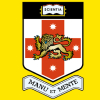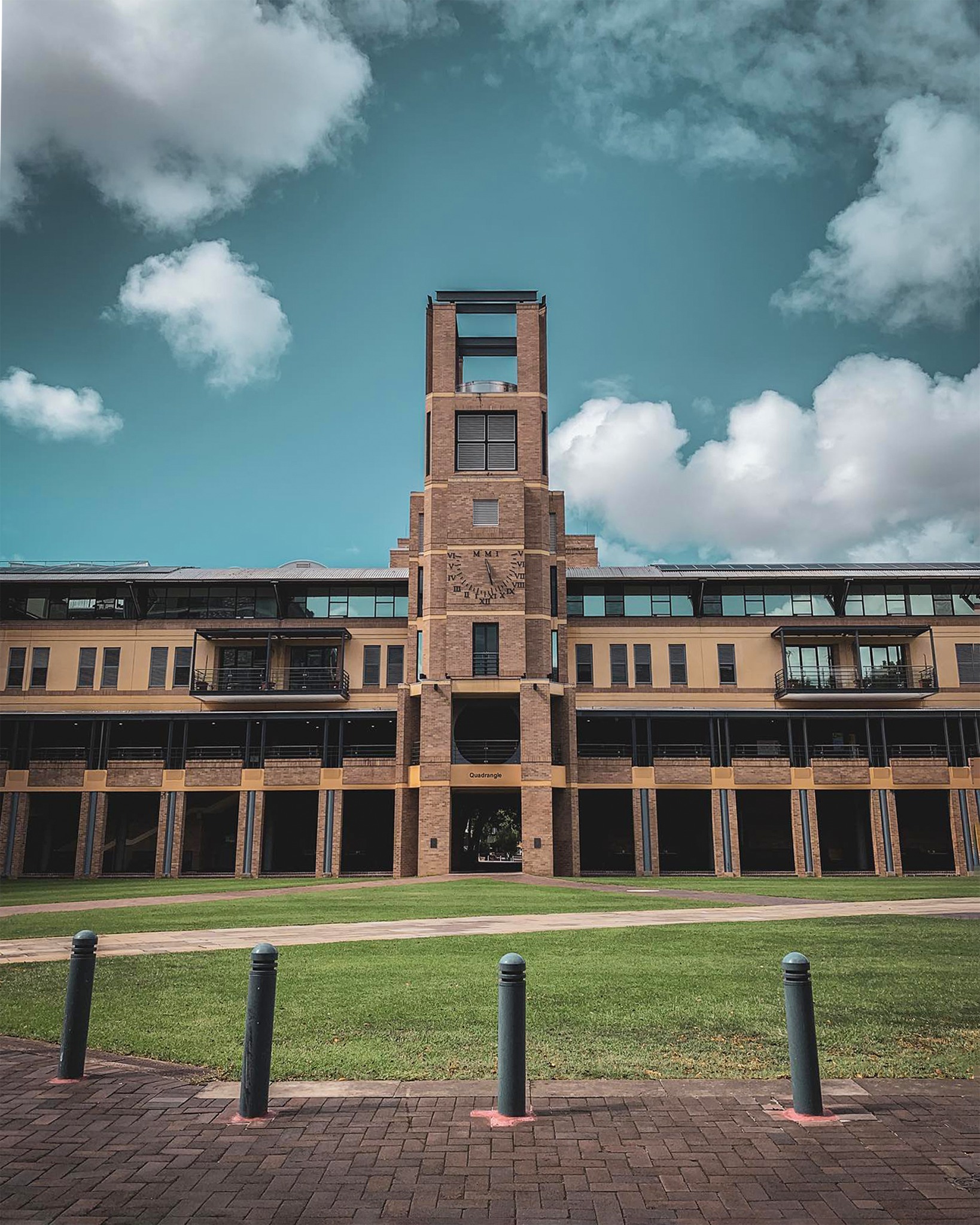Sydney NSW 2052, Australia
Career Counselling

The University of New South Wales is primarily located in Sydney, Australia. With over 65,000 students, of whom nearly 23,000 come from outside Australia, it is one of the largest universities in the country and a truly global institution of higher learning.
UNSW has four campuses: three in the city of Sydney (the main Kensington campus, which occupies 94 acres and serves as the hub of most academic, research, social, and administrative activity, the Paddington campus, which is in the creative district and that hosts the School of Art & Design, th...
| Establishment year | 1949 |
| Total Students | 65,600 (2021) |
| International Students | 22,946 (2021) |
| QS World University Rankings 2024 | =19 |
| Campus Size | N/A |
| Total Number of Campuses | 4 (+ multiple regional rural campuses) |
| University Website | https://www.unsw.edu.au/ |
| No. of Schools and Divisions | 7 Faculties (Arts, Design & Architecture, Business School, Engineering, Law & Justice, Medicine & Health, Science, UNSW Canberra), further subdivided into 47 Schools |
| Nobel Prize Winner Alumni | 0 |
| No. of Education Programs | 195 (undergraduate), 242 (postgraduate) |
| Student to Faculty ratio | 21:1 (2021) |
The University of New South Wales offers undergraduate and postgraduate courses through 9 Faculties, which are further subdivided into schools and research centres.
Domestic applicants to undergraduate degrees at UNSW will be admitted based on their Australian Tertiary Admission Rank (ATAR) that is calculated after a Year 12 examination, like the Higher Secondary Certificate or IBDP. Each degree has a minimum requirement and (sometimes) additional criteria; the ATAR may be adjusted based on athletic skills, illness, and financial hardship. Domestic postgraduate eligibility criteria vary heavily with course and Faculty; the degree finder tool helps list all relevant requirements in terms of undergraduate degree completion and other materials to be submitted.
All International applicants to both UG and PG degrees at UNSW must satisfy both academic and English proficiency requirements. The academic prerequisite is completion of study at a recognised institution with either a school leaving certificate (UG) or an undergraduate degree and transcripts (PG). English language requirements (for students whose first language is not English) can be satisfied by submitting qualifying scores from a recognised test (e.g. TOEFL, IELTS, PTE, UNSW Global English Course) taken within the previous two years. Each degree page also has detailed requirements, including some that may be program-specific.
Domestic undergraduate applicants to UNSW should start with the course finder, and verify that they satisfy the entry requirements. The application must be submitted through the Universities Admissions Centre (UAC) portal. Up to five degrees can be chosen, and the offer will be received over email and can be accepted online.
Domestic postgraduate applicants must submit their applications through the University’s application portal for most degrees. However, for a few degrees (e.g. JD, Master of Teaching) the application must be submitted via UAC. Certain programs have additional English entry requirements.
International applicants (from outside Australia and New Zealand) to both undergraduate and postgraduate degrees follow a similar process, with the following steps:
Undergraduate domestic students at UNSW usually pay student contribution fees instead of full tuition fees, if they are in Commonwealth supported places (CSP). These fees are organised into four bands for different courses, with the lowest fees of $4,124 per year in Band 1 which corresponds to degrees in Mathematics, English, etc. Band 2 has student contribution fees of $8,301, for most Engineering programs. Band 3 (Medical and Dentistry courses) has student contribution fees of $11,800 per year. Band 4 (Law, Accounting, etc.) has annual fees of $15,142.
Postgraduate domestic students usually have to pay domestic fee slabs; CSP candidates are fewer in number. The relevant University web page has details of the domestic tuition fees payable by academic Faculty.
International students can find tuition fee information on individual course pages. All the information is also organised by the Faculty on the UNSW fees page. Indicative tuition fee amounts include the annual cost of the Bachelor of Commerce degree ($45,340) and the Bachelor of Science degree ($47,615). Postgraduate program costs are typically in the same ballpark as international UG fees, with the MBA degree being a notable exception, at $58,860 per year.
All students must also pay the Student Services and Amenities Fee, which is capped at $326 per year. The University recommends that international students budget $23,000 per year towards living costs, including accommodation, food, personal expenses, and travel.

The University of New South Wales has four campuses. The main Kensington campus occupies 94 acres in the eastern suburbs of Sydney and is the hub of most academic and student activity at UNSW. The Paddington campus is home to the School of Art & Design, and is located in Sydney, close to the offices and studios of art and design creative companies. The Sydney CBD campus houses many classes of the UNSW Business School. Finally, the UNSW Canberra campus is located in the Australian capital city, and is located at the Australian Defence Force Academy (ADFA). A fifth campus is under construction, the Canberra City Campus, which aims to expand the academic and research presence of the University beyond the four Schools that are currently in operation at UNSW Canberra. It also maintains many regional campuses to promote rural medical education (through the Rural Clinical Campuses across New South Wales) and research sustainable energy.
UNSW Sport aims to provide inclusive sports facilities and training to all students, and to support the sporting achievements of high performance athletes at the university. The outdoor Village Green space is one of the largest and most important social spaces on campus: it has recently been enhanced into a complete wellness environment. The modern David Phillips Sports Complex hosts many indoor sports courts. The campus also has gyms and swimming pools.

UNSW Sport manages 39 sports clubs, from Archery to Muay Thai and Cricket to Triathlon. Students can hone their skills and sporting interests to a level where they can represent UNSW at the inter-varsity level. The University is a member of the Elite Athlete Education Network, and crafts customised academic plans for highly qualified athletes who join UNSW, so that they can balance their sports commitments with academic submissions, and build a career path towards life after sport.
The UNSW Fitness & Aquatic Centre contains most of the gym, fitness, training, and swimming facilities of the university. It has a very active group fitness class schedule, with students having many options to choose from: HIIT, yoga, body pump, and functional training. Memberships start at $16 per week for staff and students of the university.
The UNSW Careers section helps students develop employability skills and connects potential employers with students. All students can use the UNSWConnect portal to view student jobs, use the Resume Checker tool, and book in-person Career Coaching Sessions. UNSW Careers also sets up networking events, workshops, presentations, and seminars. Finally, it provides job application resources and coordinates the process of final placements both for senior students and recent graduates.
The closely related UNSW Employability initiative aims to build on UNSW's record of producing industry-ready graduates and uses coaching and other resources to get students ready for their long term careers.
Given the high cost of education at UNSW, the University provides a wide range of scholarships to help students fund their education. All scholarships, along with eligibility criteria, additional information, and application links, can be found on the UNSW scholarships website.
Domestic students at UNSW can apply for multiple scholarships for which they are eligible. For example, the Academic Achievement Award is given to students who have the highest Australian Tertiary Admission Rank (ATAR) in high schools in New South Wales and entails an amount of $5,000. Equity scholarships are automatically offered to domestic applicants who are from low socioeconomic backgrounds; with the value of the award being at least $5,000 per year. The Scientia Scholarship is the apex academic award for domestic undergraduates; it is offered to students with an ATAR score of 99.9 or above, and pays $10,000 over the course of the degree.
The flagship scholarship for overseas students at UNSW is the International Scientia Coursework Scholarship, awarded to international students based on academic excellence, leadership potential, extracurricular activities, and passion for being a part of the UNSW community. It entails a tuition fee reduction of $20,000 per year. Other notable scholarships include the India Future of Change Scholarship, where highly motivated Indian students with excellent academic records are awarded $10,000 per year, and the International Student Award, where students from eligible countries have their annual tuition fees reduced by 15% based on academic merit and commitment to studies.
